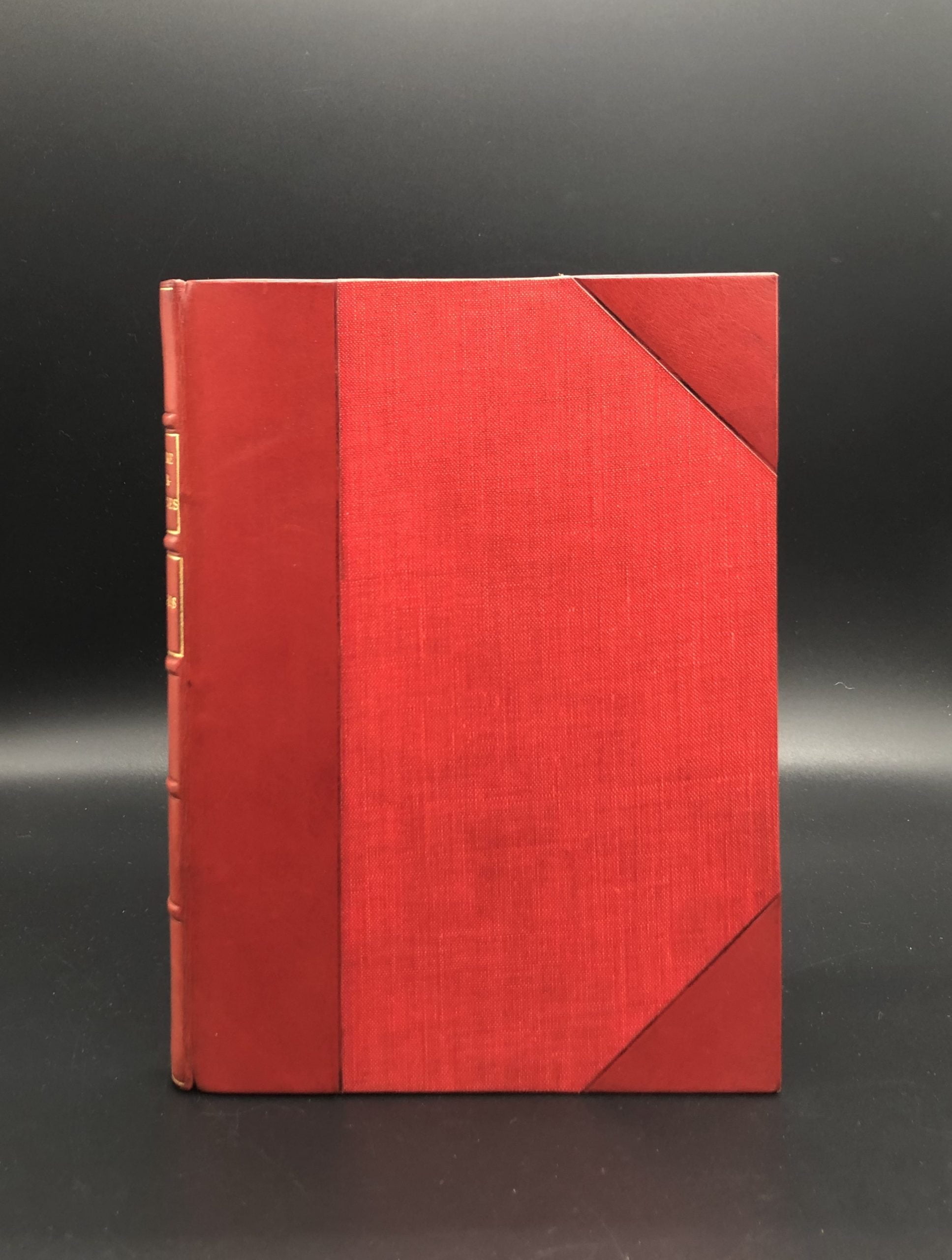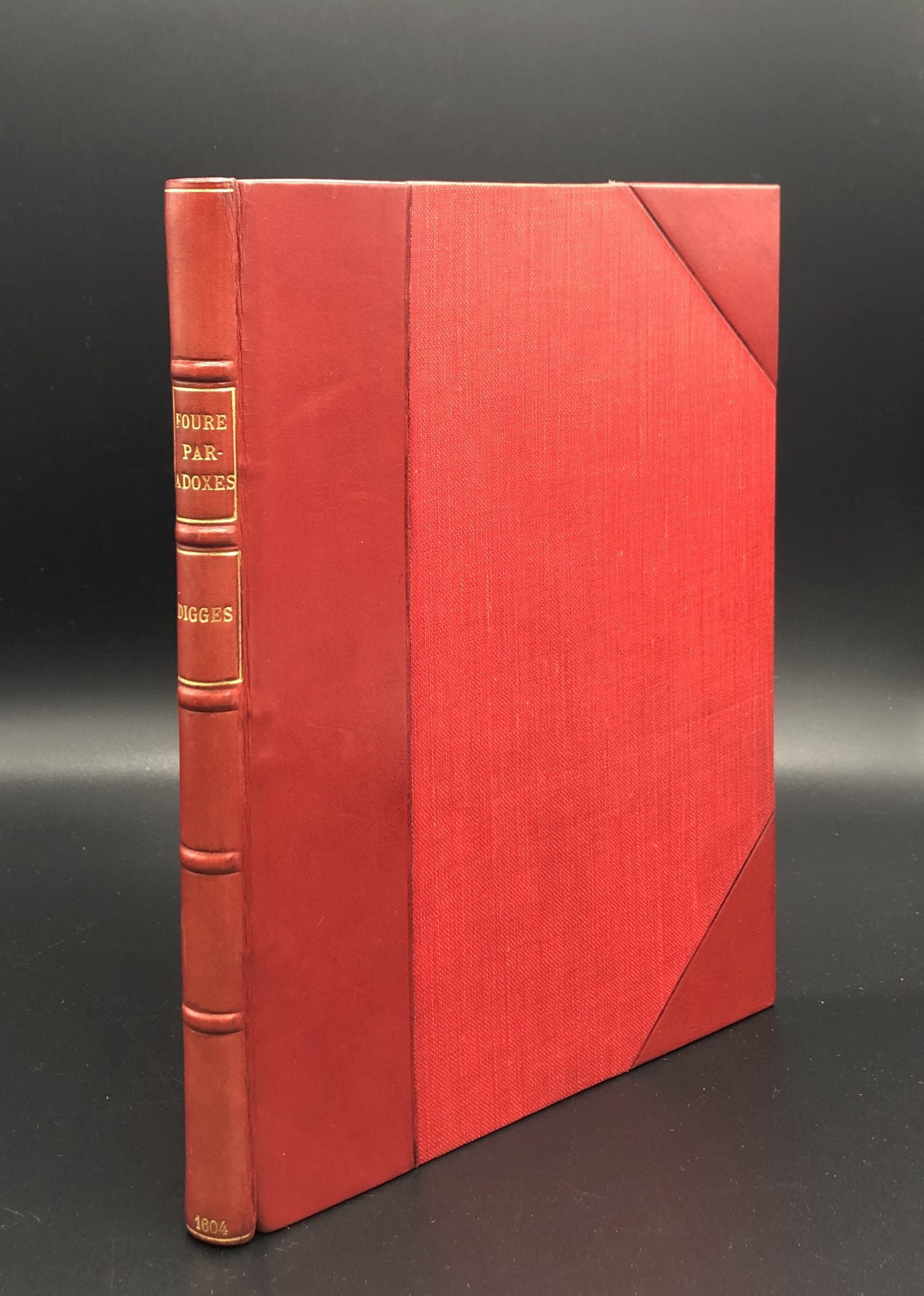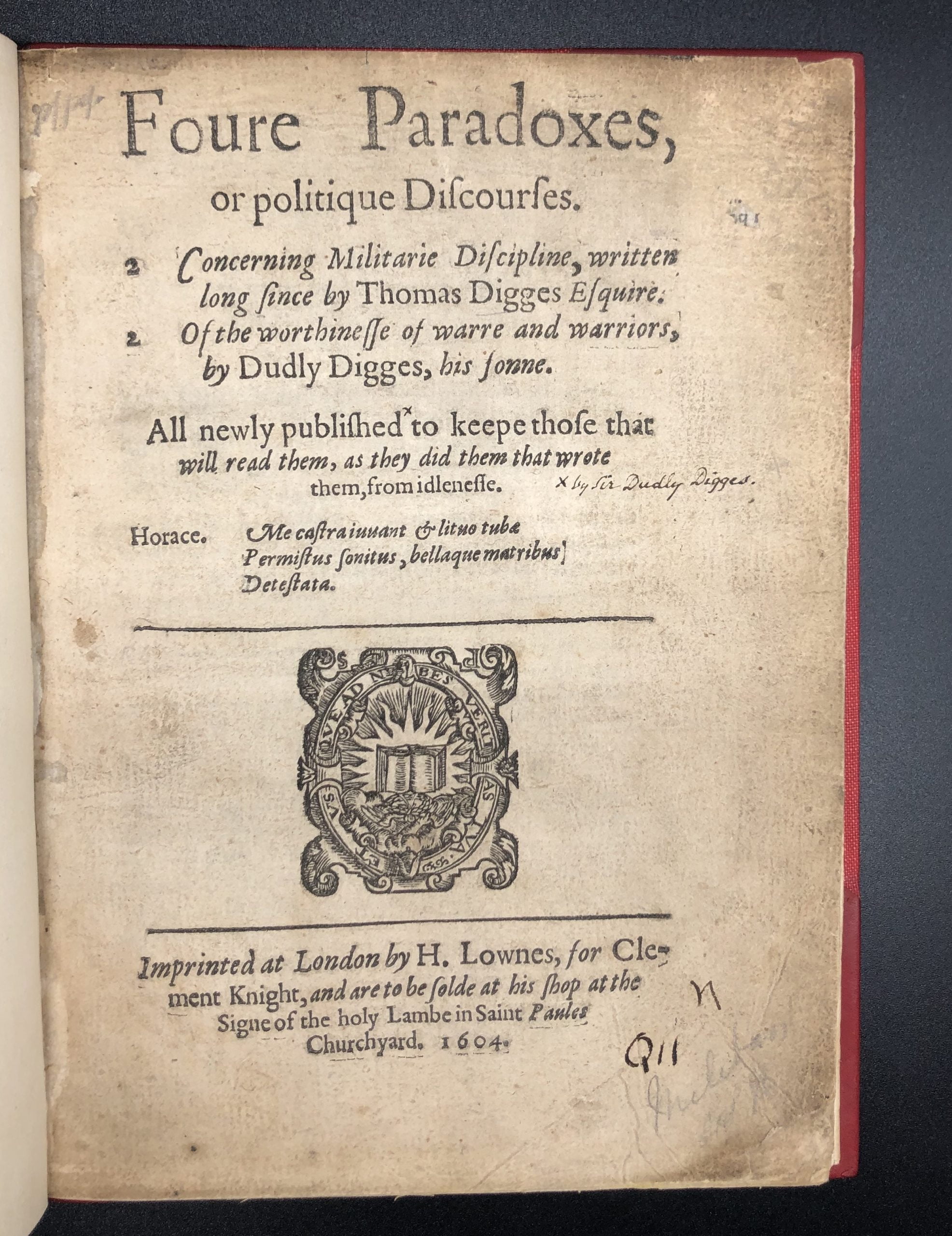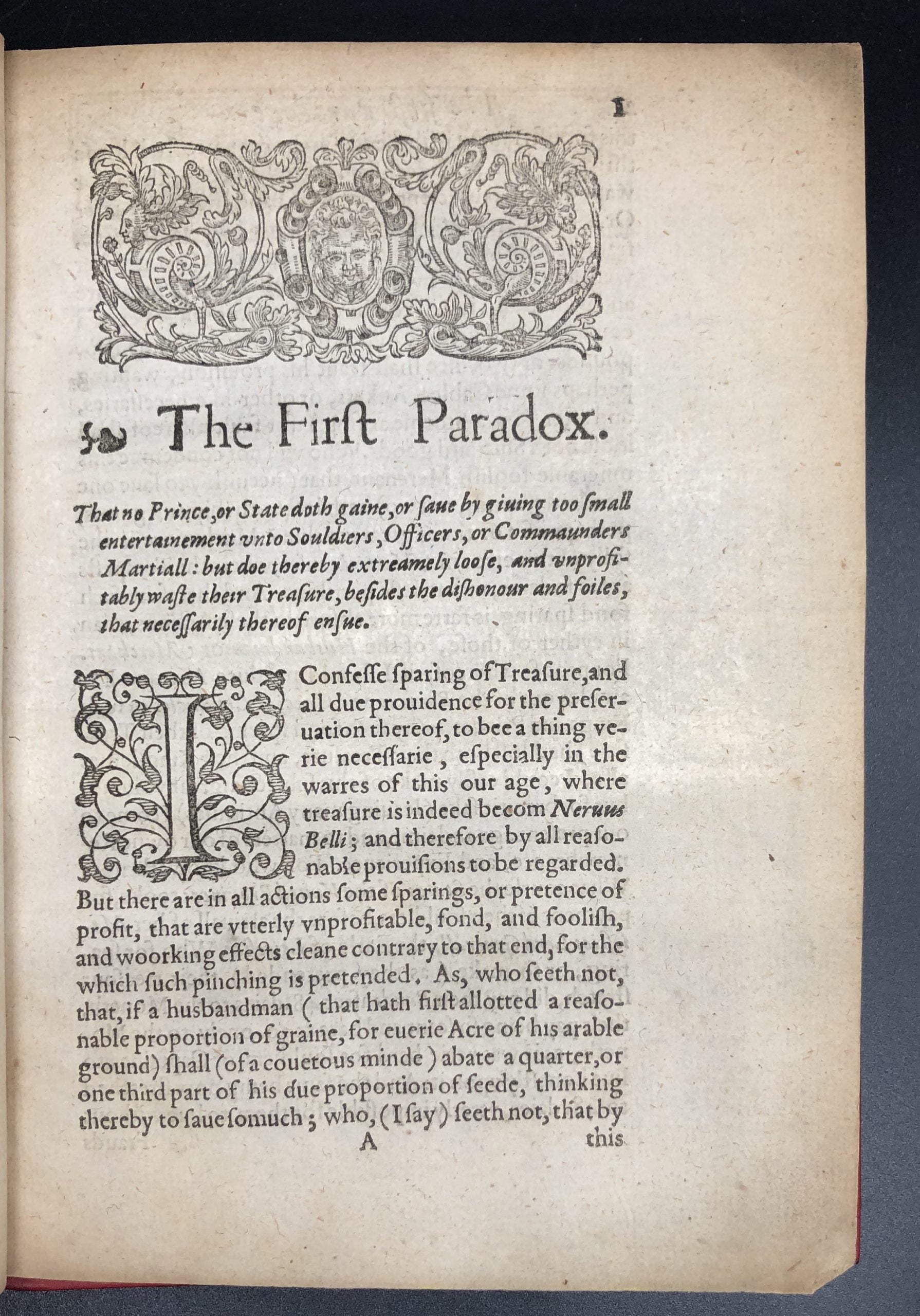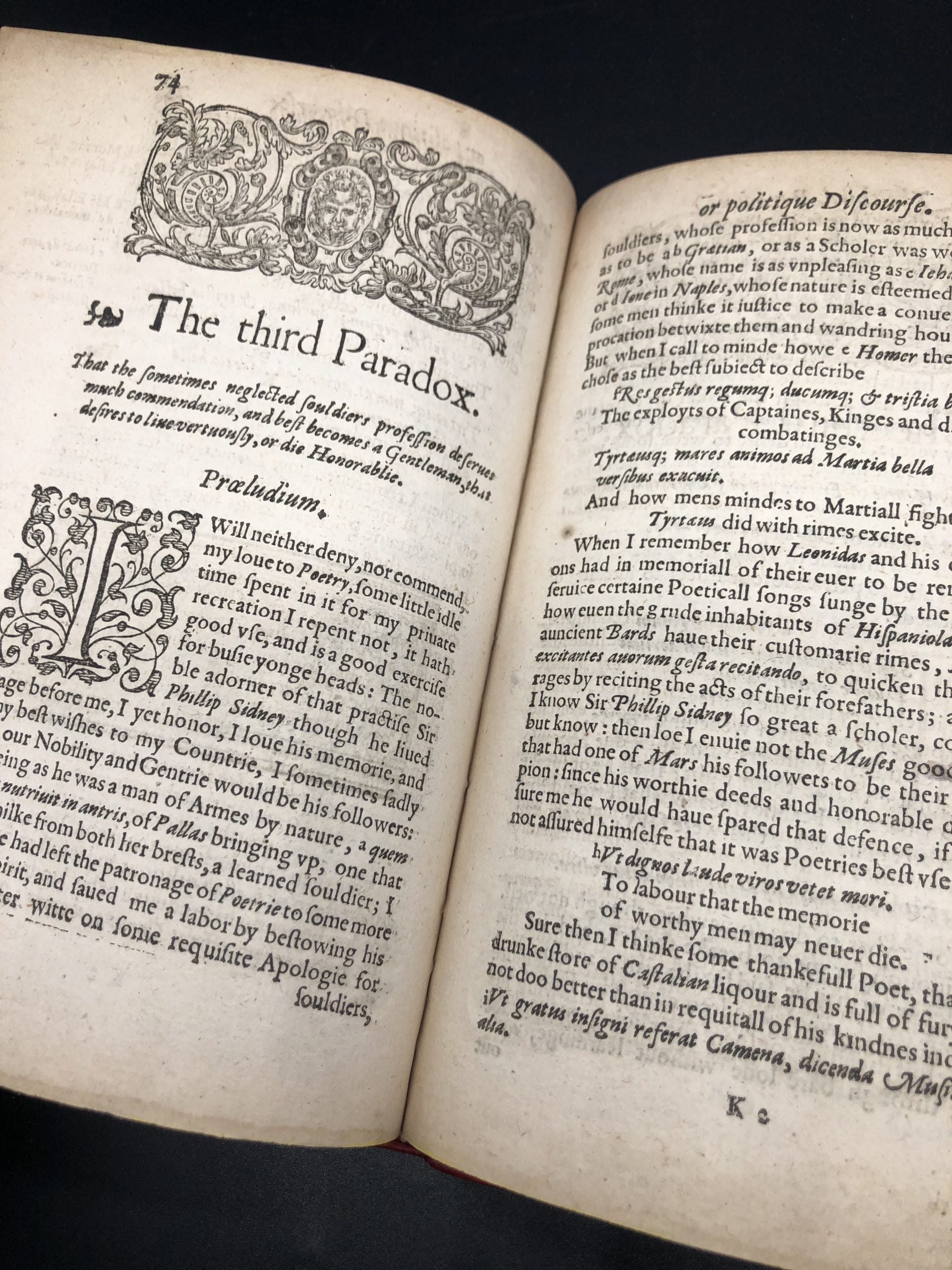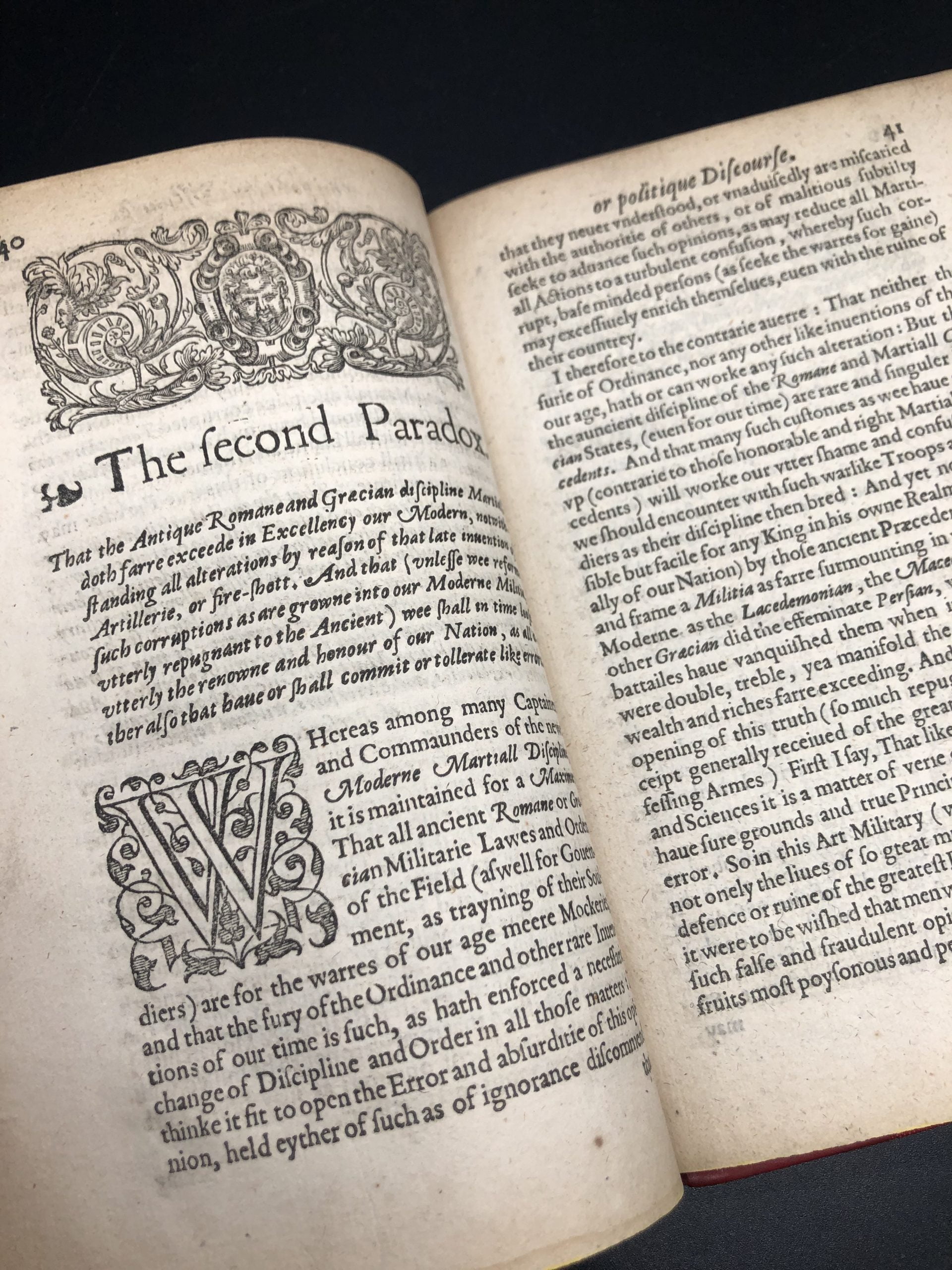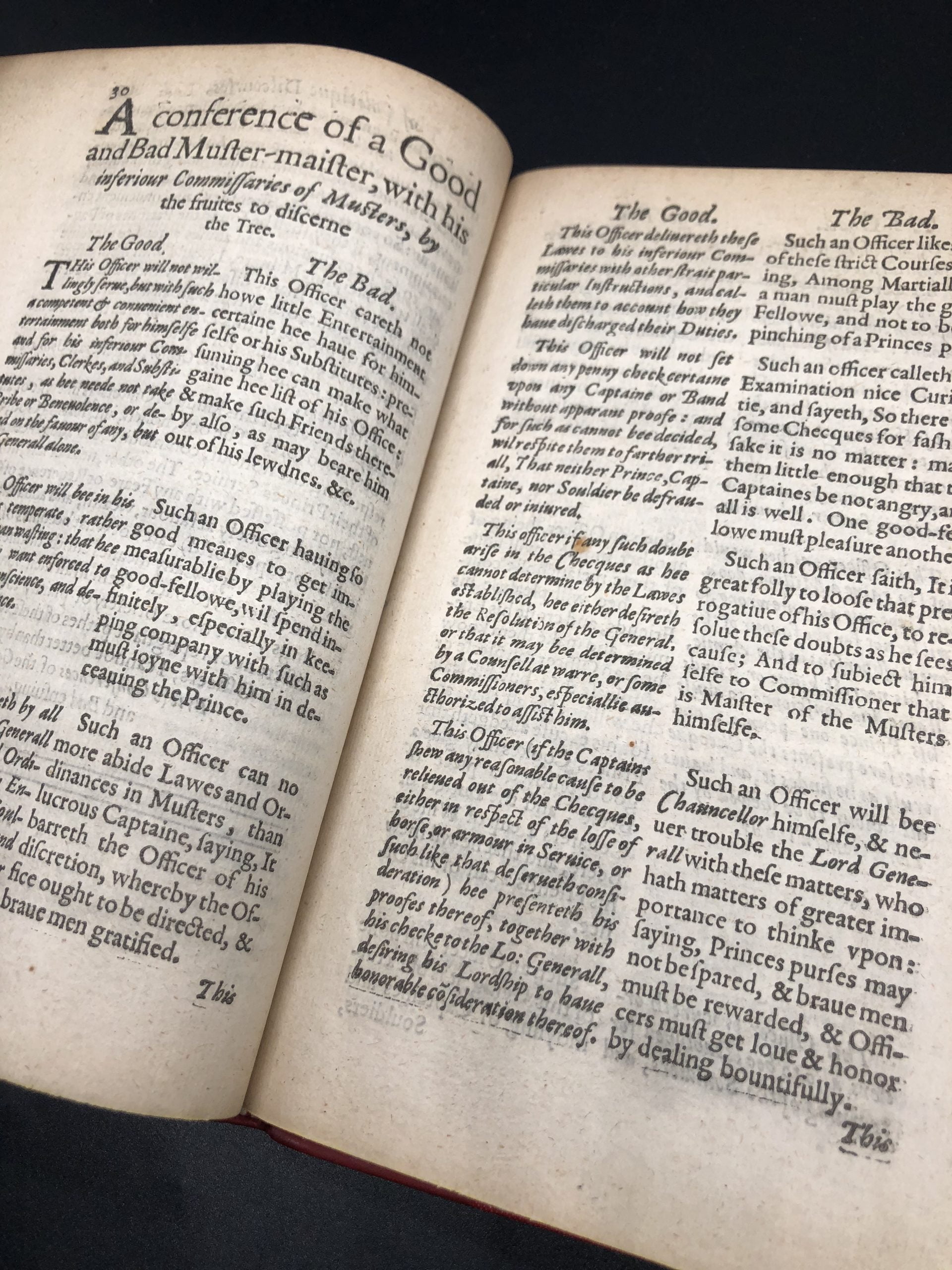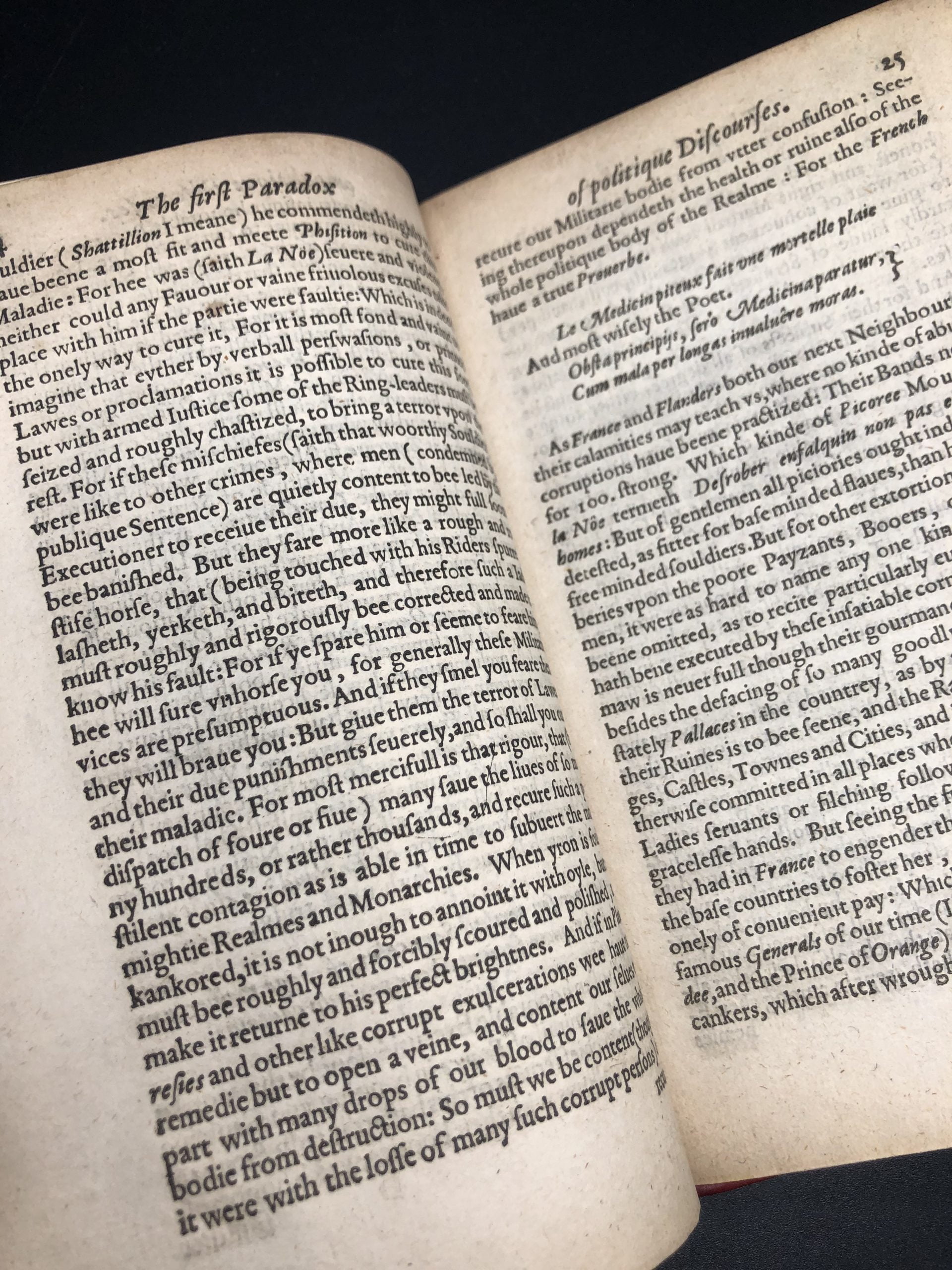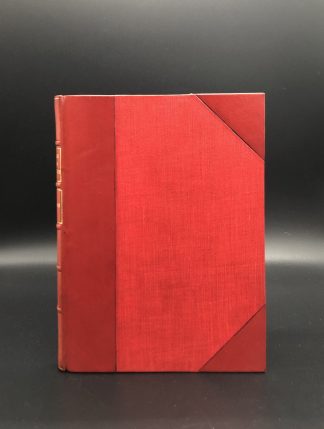DIGGES, Thomas, DIGGES, Dudley
INSPIRING SHAKESPEARE?
Foure paradoxes, or politique discourses. 2 concerning militarie discipline,
London, By H. Lownes, for Clement Knight, 1604£2,500.00
FIRST EDITION. 4to. pp. [iv], 111, [i]: pi², A-O . Roman letter, some Italic. Small woodcut printer’s device on title, floriated woodcut initials, grotesque woodcut head and tail-pieces, typographical ornaments. Light age yellowing, title dusty, chipped at lower outer blank corner, a little dust soiling at margins of first few leaves, minor marginal dust soiling in places, the rare marginal stain. A good copy, with good margins, in modern three-quarter red calf, spine with raised bands, title gilt lettered, all edges yellow.
Rare first edition of this important work on the state of the English militia, probably a source for Shakespeares’ Coriolanus. “As Digges died in 1595 there was an interval of at least nine years between the writing of ‘Paradoxes 1. and II.’ and their printing. These are filled with complaints of the dishonesty of officers. Foreign writers, too, were making similar accusations, notably Marcos de Isaba, who, in the ‘Cuerpo enfermo de la Milicia Espanola’, waxes very bitter on the subject. Both in English and foreign armies, officers, from the commander in chief to the captain of the band, where engaged in defrauding one another and the private soldiers. If the men clamoured for pay, license for pillage quieted them, or, in some cases, a still surer remedy was found; generals when deep in debt to any troops would send them on some desperate service, wherein most of them were sure to perish. Four pages of Paradoxes I are devoted to a comparison between a good and a bad paymaster; and much of Paradox II to another between modern discipline and the discipline of the Greeks and Romans. Digges maintains the former, ‘In spite of the late invention of gunpowder,’ to be vastly inferior to the latter, and he cites thirty points of difference between the two systems in support of his views. Indeed the English militia had become so inefficient as to make reform imperative. Captains, being paymasters of their own bands, made use of their position to pocket the mens’ pay; drill was neglected, and no dependence could be placed on soldiers, who, taken from the lowest class, thought nothing of running from the enemy. Smythe, though an opponent of Digges, corroborates these statements. Digges was a reformer, and certainly a good friend to the private soldier;.” Cockle.
“In 1604 a volume was published entitled ‘Four Paradoxes, or Politique Discourses’, containing two essays by Thomas Digges, and two by Dudley Digges, his son, and the stepson of Shakespeare’s testamentary overseer. One of Dudley’s essays is in praise of the soldiers profession. In the other he argues ‘That warre sometimes’ is ‘less hurtfull and more to be wisht in a well Governd state than peace’. War, he declares, is better than ‘luxurious idleness’… With this may be compared the dialogue on the advantages of war in Coriolanus IV. v.. Digges proceeds to discuss the use of war as a means of curing internal dissensions, his main example being the story of Coriolanus taken directly from North’s Plutarch, though with the insertion of one phrase from Livy. … we cannot be sure that Shakespeare had read ‘Foure Paradoxes’, though he might have done so out of neighbourly interest. In Coriolanus he uses the metaphor of breaking out in three places, though his use of it is not confined to this play. … Although, therefore, Shakespeare could have developed his conception of the play from Plutarch’s lives, Digges may well have contributed to the atmosphere of the play with his praise of the military hero, his claim that the ‘discommoditie of our long peace opprest by luxurie’ is ‘worse farre than warrre’, and his retelling of the Coriolanus story as an example of the way foreign wars can be used to cure sedition.” Kenneth Muir. ‘The Sources of Shakespeare’s Plays.’
ESTC S109705 STC 6872. Cockle 77.In stock


